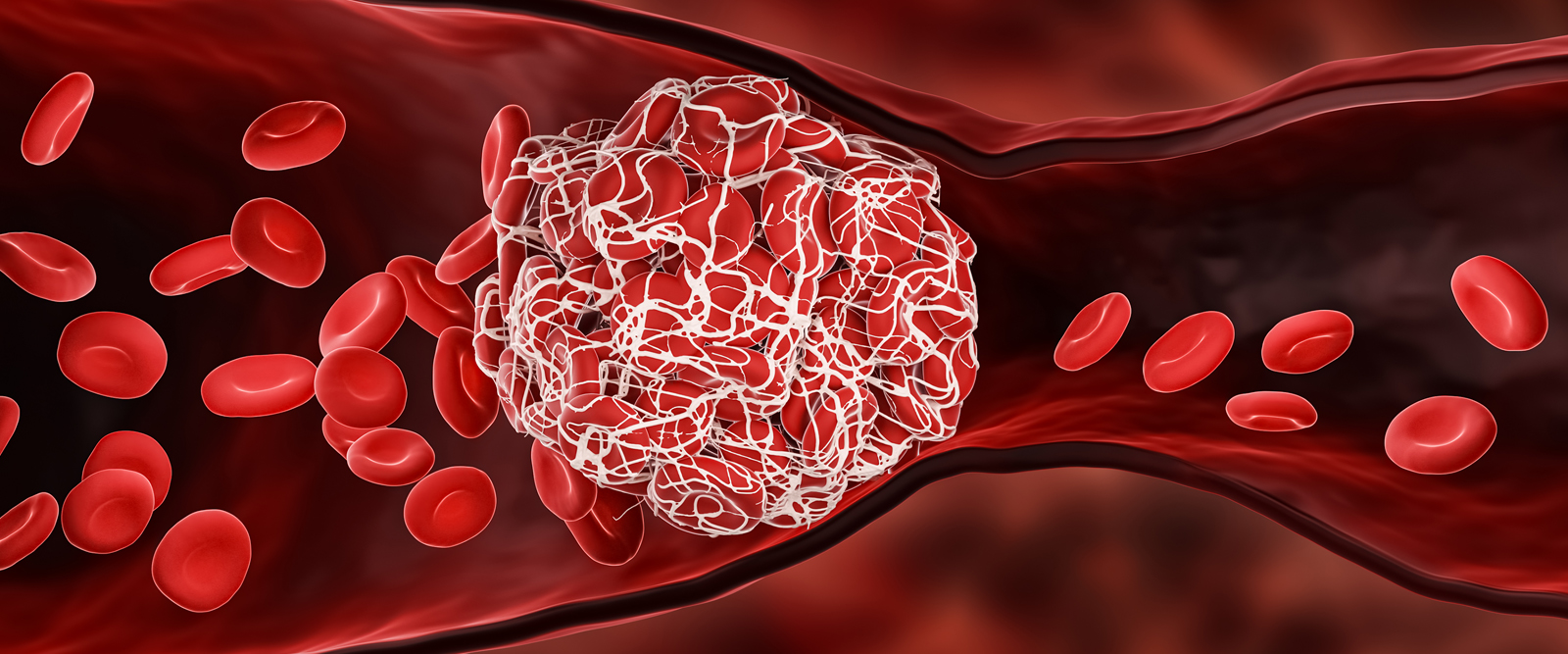What to Know About Blood Clots and COVID-19
A cardiologist explains the link between blood clots, COVID-19, and the J&J vaccine.


A blood clot is the body’s natural response to help stop bleeding after a small injury. But when blood clots develop in the veins and don’t dissolve, they can become life-threatening. “Untreated blood clots can lead to heart attacks, stroke, and pulmonary embolism,” says Dr. Jennifer Haythe, an advanced heart failure and transplant cardiologist and co-director of the Columbia Women’s Heart Center at NewYork-Presbyterian/Columbia University Irving Medical Center. Blood clots have proved to be a serious complication of severe COVID-19 disease. And recently, 16 people — 15 of whom were women — developed a rare blood clot condition, called thrombosis with thrombocytopenia syndrome (TTS), after receiving the Johnson & Johnson COVID-19 vaccine. With approximately 8 million Americans having received the J&J vaccine, the condition — though serious — remains extremely rare.
Health Matters spoke with Dr. Haythe, an associate professor in the Division of Cardiology, Center for Advanced Cardiac Care at Columbia University Vagelos College of Physicians and Surgeons, to find out more about the risk of blood clots from COVID-19 versus the risk from receiving the J&J vaccine.

Dr. Jennifer Haythe
Health Matters: Why do blood clots occur in the first place?
Dr. Haythe: Blood clots are formed when platelets clump together to stop the bleeding. There are many different kinds of blood clots, and they can occur when you have damage to your skin or your blood vessels. Your body releases different kinds of clotting factors, like platelets, that help prevent you from bleeding excessively from those small injuries. But they become dangerous when they clump abnormally and don’t dissolve.
Who is most at risk for blood clots?
There are people who have known clotting and bleeding disorders, for example hemophilia, which is a rare, inherited bleeding disorder in which the blood does not clot properly. Aside from these genetic instances, women who take a birth control pill are known to have an increased risk of blood clots in their legs and lungs. Women who are pregnant are also at increased risk of blood clotting, most likely due to hormonal changes in the body. In general, women’s risk of blood clots is higher than men’s because of pregnancy or birth control. In addition, people who are bed-bound or immobilized after surgery, or who have taken a long trip in a plane, car, or train and do not move their legs frequently, are also at risk for clot formation.
What is thrombosis with thrombocytopenia syndrome (TTS)?
Thrombosis is another word for a blood clot. In people with thrombocytopenia, there is a low platelet count, which can lead to excessive bleeding. You might think, well, if blood platelets are low, aren’t you bleeding rather than clotting? But, in fact, they can be low because the platelets are being consumed to clot in a different part of the body.
Is this what happened with the J&J vaccine?
In the case of Johnson & Johnson, 12 of the 15 women developed a type of blood clot that forms in the brain called a cerebral sinus venous thrombosis, which is a form of stroke. These individuals also had a low blood platelet count, or thrombocytopenia. This relatively rare blood clot in the brain is not usually associated with thrombocytopenia, which is why the two conditions combined is extremely rare.
Do experts know why these blood clots occurred?
The CDC has not released much information about other conditions that these people may or may not have had prior to the vaccine, for instance if they had other kinds of clotting disorders. We still need more data, but one hypothesis is that the vaccine caused an inflammatory response that affected the platelets in a way that made people form abnormal clots.
The closest thing we can compare it to is a rare syndrome that occurs in patients who are exposed to a drug called heparin. Heparin is a blood thinner and is meant to thin the blood and prevent blood clots from forming. There are some people who, when given heparin, can develop a very abnormal condition called heparin-induced thrombocytopenia, where the heparin actually causes an abnormal response in the platelets, causing patients to clot and bleed abnormally. This is helpful information since it impacts how people with TTS are treated, and now it is advised that heparin should not be given to patients in this scenario.
“You’re more likely to get struck by lightning than to experience this blood clot condition from the vaccine, according to the CDC.”— Dr. Jennifer Haythe
TTS after receiving the J&J vaccine has mostly occurred in women, ages 18-48. Why is that?
Researchers are still investigating whether there is something these women have in common, but it is still too small a number to come to the conclusion that this side effect is only seen in women.
How common are blood clots for those with severe COVID-19?
Clot formation was very commonly seen in patients with severe COVID-19. We saw the formation of clots in people’s legs, their lungs, their brains, their kidneys, their hearts, and even their skin. A July 2020 study cited that out of 3,000 COVID patients in the New York City health system,16% developed at least one type of blood clot. And among the 829 patients in the ICU, 29% had a blood clot. That’s really high.
For the general population, what is the risk of getting blood clots caused by the J&J vaccine?
Extremely low. I tell my patients that I understand their anxiety and that with every decision you have to weigh the risks and benefits. But the more people who are vaccinated, the safer our whole world becomes for everybody. I have seen many COVID patients get gravely ill, and have had patients with COVID develop cerebral sinus venous thrombosis and get different kinds of blood clots that are life-threatening.
You’re more likely to get struck by lightning than to experience this blood clot condition from the vaccine, according to the CDC. The risk of getting COVID is much greater. We’ve seen millions of people be vaccinated without any problems.
What side effects should people be aware of after getting the J&J vaccine?
If, within two weeks to one month of receiving the J&J vaccine, you develop a headache, blurry vision, loss of consciousness, fainting, loss of strength or muscle control, or a seizure, then you should go to the emergency room for immediate treatment.
Stay informed about the latest news on COVID-19.
Jennifer Haythe, M.D. , is an advanced heart failure and transplant cardiologist and co-director of the Columbia Women’s Heart Center at NewYork-Presbyterian/Columbia University Irving Medical Center. She is also an associate professor of medicine in the Division of Cardiology, Center for Advanced Cardiac Care at Columbia University Vagelos College of Physicians and Surgeons. Dr. Haythe specializes in pulmonary hypertension, heart failure, and cardiac transplant. She has a special interest in chronic thromboembolic pulmonary hypertension (CTEPH) and the care of pregnant women with cardiovascular diseases.

